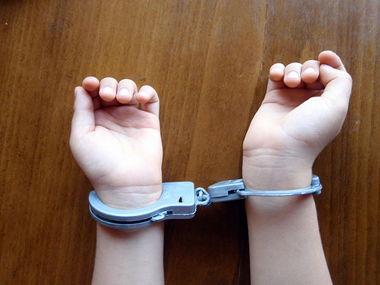Problem in The Roots of Society: Crime against Children & by Children
Introduction The Government of India has acceded in the 11th December 1992 to the Convention on the Rights of the Child which has prescribed a set of standards to be followed to ensure healthy physical, emotional, intellectual and social development of the child. On one side where there are globalization and development on the flip side there is… Read More »

Introduction
The Government of India has acceded in the 11th December 1992 to the Convention on the Rights of the Child which has prescribed a set of standards to be followed to ensure healthy physical, emotional, intellectual and social development of the child. On one side where there are globalization and development on the flip side there is poverty, unawareness, unemployment. These are the key factors which create certain people to be so sick minded that they don’t even spare children of our society.
The crime rate against children has increased to a significant number. The upbringing in a certain type of environment also leads children to get indulged in criminal activities.
Why there is an increased number of Crime against Children?
Manipulating and convincing a child is really easy because of their curious nature and innocence. Many people take advantage of this sort of nature. A child is really easy to be threatened and feared off which comes complimentary as there is less risk of being caught. There are a lot of crimes being committed against children Murder, Kidnapping, Sexual abuse, Rape, Molestation etc. There are various factors responsible:
- Ignorance of Parents or Guardian
- Lack of Sex Education
- Monetary Gains
Law in India to counter such crimes
Earlier these were covered by the Indian Penal Code as the definition of Man and Woman under Section 10 of the act included Male and Female human being of any age. With changing scenarios and increase in crimes against children special laws were enacted by the parliament which specifically deals with the offenses committed against children.
POCSO i.e. The Protection of Children from Sexual Offences 2012 was enacted with a view to punishing the offender committing offenses against children which also included punishment for the offense of child pornography, which is rather a new concept.
The main object of the act is to protect children from offenses of sexual harassment, sexual assault, and pornography and to provide for the establishment of Special Courts for the trial of such offenses and for matters connected with it. Act also includes the procedure to be followed by the court while dealing with cases under this Act.
Crime committed by Children
Various factors such a poverty, family background, illiteracy, criminal contacts etc a child is diverted to the path of crimes. Children are sometimes used as a tool in the commission of a crime and they don’t even realize that they are committing a crime. Mostly petty crimes are committed by children. They are not called criminals though, that is considered as a bit harsh for children. They are called as Juvenile delinquent.
Who is a Juvenile delinquent?
Under Indian Law, a child below the age of 18 yrs is called as a Juvenile and any juvenile who commits a crime is called as Juvenile delinquent.
In India, The Juvenile Justice Act of 2015 was enacted to specifically deal with the problem of Juvenile delinquencies. The Act provides for the procedure to handle the juveniles. The act also provides for the punishment and rehabilitation for the juvenile delinquents. Special officers are appointed and a Board is set up to deal with the matters related to the cases called as the Juvenile Justice Board.
The children should not be punished but should be educated. Most of these children are the victim of poverty and illiteracy. Most of these children become criminals because of coercion or undue influence. Through rehabilitation and counseling, change can be expected. Punishment in case of juveniles shall be the last option left to cure the sick mind of a child.
– Adv. Devyani Bhati
Content Writer @ Legal Bites


